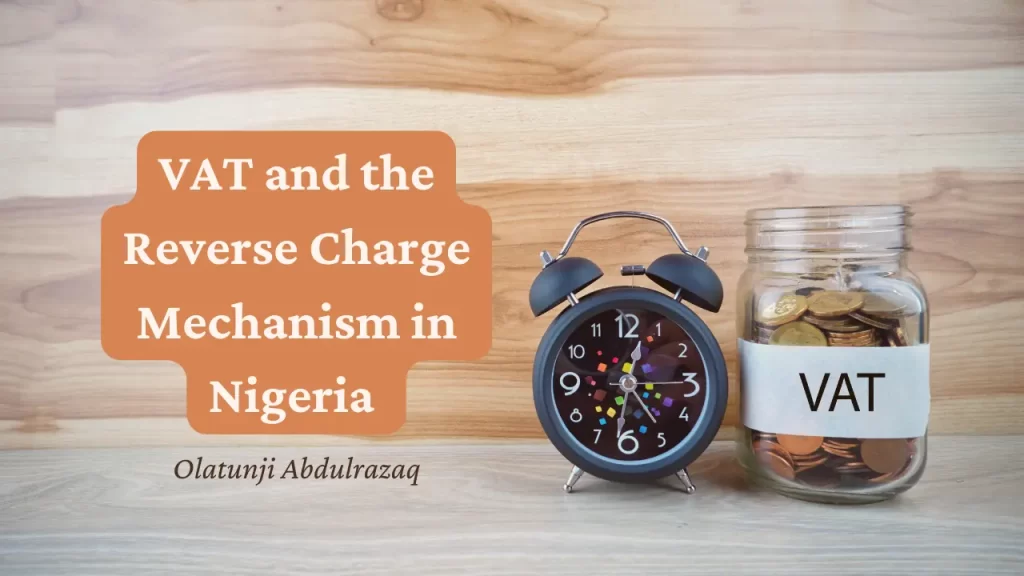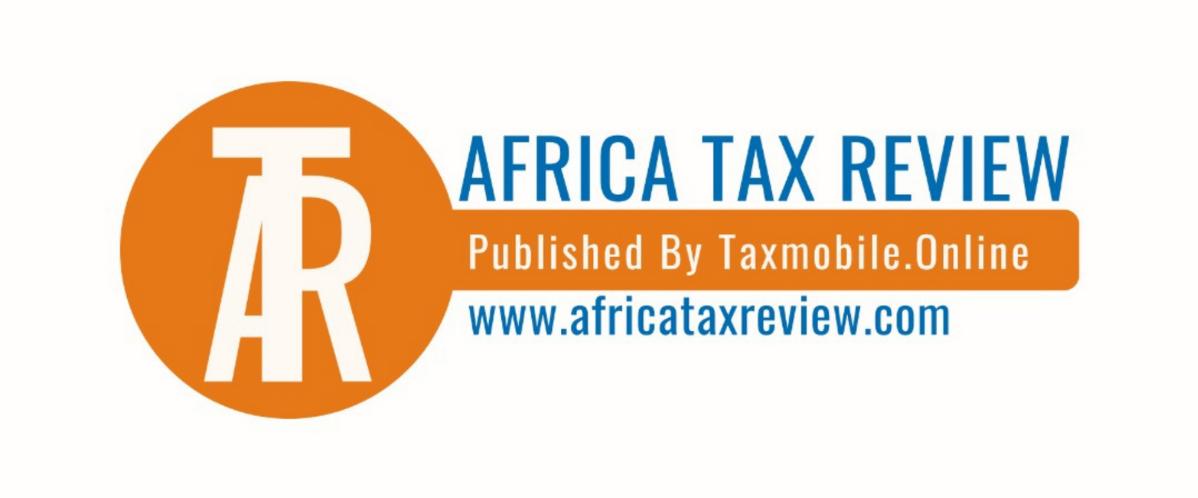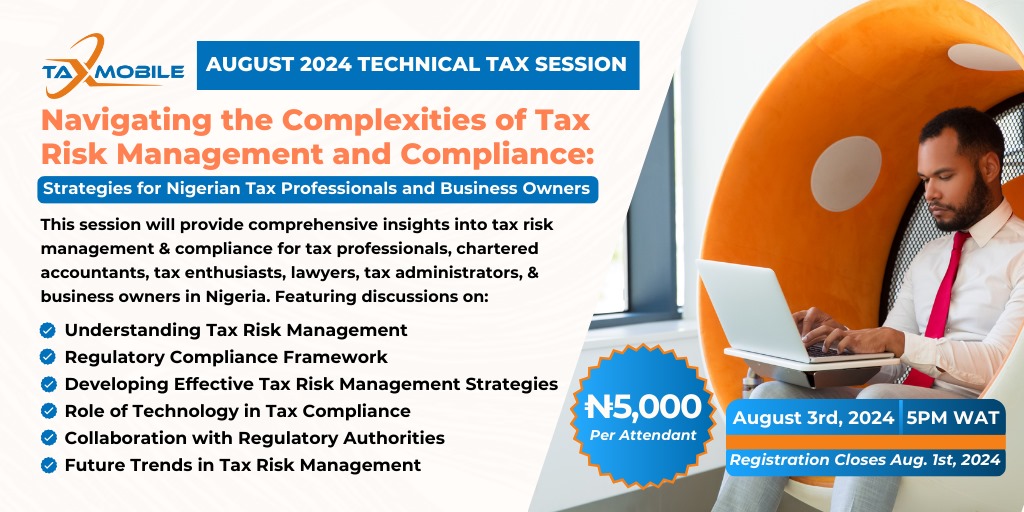
By Abdulateef Olatunji ABDULRAZAQ, Founder, Taxmobile.Online and Principal Partner, AOA Professional Services.
Introduction
Taking a looking VAT and the Reverse Charge Mechanism in Nigeria involves first putting into proper perspective what the Value Added Tax, VAT stands for.
Value Added Tax (VAT) is a consumption tax imposed on the value of the supply of taxable goods and services produced and consumed in Nigeria. The Finance Act (FA)2020 generally defines taxable supplies of goods and services as supplies received and consumed by a person in Nigeria, regardless of the location of the supplier. Such non-resident persons are required to include Nigerian VAT on their invoices to Nigerian customers.
The tax shall be computed at the rate of 7.5% with effect from 1st February 2020, on the value of all goods and services, except that goods and services listed under Part III of the first schedule of the VAT Act(As Amended).
VAT is administered and managed by the Federal Inland Revenue Service(FIRS) and they may do such things as it may deem necessary and expedient for the assessment and collection of the tax and account for all amounts so collected following the provisions of the VAT Act.
Understanding VAT and the Reverse Charge Mechanism
The principle of the Reverse Charge Mechanism is that it shifts the liability to account for the VAT on a supply from the supplier to the buyer of a good or service. Under this reverse charge mechanism, VAT is not charged by the supplier but is accounted for by the customer (a taxable person) in his VAT return.
The Reverse Charge Mechanism seeks to strengthen VAT enforcement by imposing additional compliance obligations on the consumers of taxable goods and services.
Legal Basis of Reverse Charge and Self-Account for VAT in Nigeria
A new reverse charge provision has been introduced so that any taxpayer that receives services from non-resident persons (legal or natural) who did not add VAT to the invoice, must self-account for the VAT and remit the same to the FIRS in the currency of the transaction.
Section 14(3) & (4) of the VAT Act introduced a Self-Account provision for all supplies for which VAT was not charged. The Self-Account provision imposed a duty to withhold and remit VAT on a taxable person to whom a supply is made in Nigeria where:
i. the supplier is a person exempt from charging VAT under the Act;
ii. the supplier failed to charge VAT;
iii. the supplier is a foreign company that makes a taxable supply of goods or services without a fixed base or permanent establishment in Nigeria, whether or not VAT is included in the invoice. The taxable person shall prepare a self-account and remit the tax due in the currency of the transaction on or before the 21st day of the month immediately following the month of the transaction.
The taxable person, in accounting and remitting the VAT, shall provide a schedule of all taxable transactions for which it is self-accounting, in the form prescribed by the Service, indicating the tax identification numbers of the suppliers in the schedule.
Non-Resident Companies and VAT Registration in Nigeria
Section 10 of the VAT Act provides that:
- A non-resident person who makes taxable supplies to a person in Nigeria is required to register for the tax with the FIRS and obtain a Taxpayer Identification Number (TIN);
- The non-resident person shall include VAT on its invoice for the supply of goods or services made;
- A non-resident person may appoint a representative in Nigeria for its tax obligations;
- Where a person has been appointed by the Service, the agent shall withhold and remit the VAT due on the transaction.
- Where the non-resident did not collect the tax, the resident person to whom the supply was made is required to withhold and remit the VAT due to the Service in the currency of the transaction.
Please be informed that VAT registration does not in itself trigger permanent establishment (PE) exposure or income tax implications. There are specified criteria for determining the PE status of non-resident companies. Where the foreign supplier does not meet any of the various criteria for establishing a PE, mere registration for VAT purposes should not expose a company to a PE risk. However, a non-resident company which has a fixed base or a permanent establishment in Nigeria is required to comply with the provisions of the VAT Act.
Other Publication by Same Author
Follow us on Twitter for more update
More About Author:
Olatunji is the founder Taxmobile.Online and Managing Partner/CEO of AOA Professional Services. Prior to this,Olatunji worked as Director, Tax & Regulatory Services at Nolands Nigeria Professional Services, Senior Manager -Tax,Regulatory & Advisory Services at Saffron Professional Services.
The information contained herein is general and is not intended, and should not be taken, as legal, accounting or tax advice provided by Taxmobile.Online Inc to the reader. This information remains strictly the opinion of Taxmobile.Online Inc.
The reader also is cautioned that this material may not apply to, or suitable for, the reader’s specific circumstances or needs, and may require consideration of other tax factors if any action is to be contemplated. The reader should contact his or her Tax Advisers before taking any action based on this information.
All rights reserved. No part of this document may be reproduced, retransmitted or otherwise redistributed in any form or by any means, electronic or mechanical, including by photocopying, facsimile transmission, recording, rekeying, or using any information storage and retrieval system, without written permission from Taxmobile.Online Inc.


